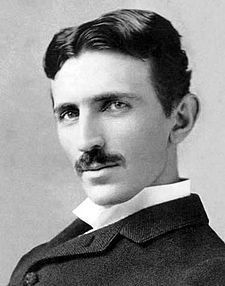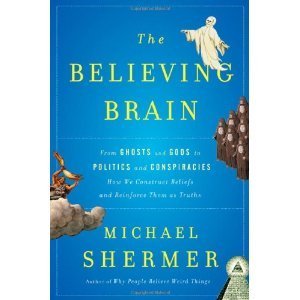Derren Brown's Blog, page 21
July 14, 2011
World population to hit 7 billion by October

The United Nations commemorates World Population Day against the backdrop of an upcoming landmark event: global population hitting the seven billion mark by late October this year.
According to current projections, and with some of the world's poorest nations doubling their populations in the next decade, the second milestone will be in 2025 when the global population will reach eight billion.
Dr Babatunde Osotimehin, executive director of the UN Population Fund (UNFPA), said seven billion represents a challenge, an opportunity and a call to action.
On World Population Day, July 11, he launches a campaign called "7 Billion Actions".
"It will engage people on what it means to live in a world with seven billion people and encourage action on issues that affect all of us," he said.
The rise in population is expected to have a devastating impact on some 215 million women who want – but do not have – access to quality reproductive health and family planning services.
The world's five most populous countries are China (1.3 billion), India (1.2 billion), the United States (310.2 million), Indonesia (242.9 million) and Brazil (201.1 million).
The date for the eight billion population milestone is projected now to be 2025.
Full story and more facts at Aljazeera.net
Take part in a treasure hunt at the Natural History Museum and find £1000
Magician, card master and all round mysterious man Drummond Money-Coutts has organised a treasure hunt in the Natural History Museum in London. He's carefully hidden small envelopes around the venue with £50 notes in them. However this week he's putting £1000 in to one for a lucky individual to find and keep.
So far only 3 have been found which means there's still plenty more up for grabs. Subliminal clues on his facebook page might just help reveal the answer.
July 13, 2011
Newts able to regenerate indefinitely, regrowing eye lenses 18 times
Newts have a remarkable ability to regenerate body parts – in this case the lenses in their eyes – time and time again.
Over a 16-year period, Panagiotis Tsonis at the University of Dayton, Ohio, and colleagues removed the lenses of six Japanese newts (Cynops pyrrhogaster) 18 times. After each excision, the lenses regenerated. They did so not from remaining lens tissue, but from pigment epithelial cells in the upper part of the iris.
By the end of the study the newts were 30 years old, five years older than their average lifespan in the wild. Even so, the regenerated lenses from the last two excisions were indistinguishable from lenses of 14-year-old adults that had never regenerated a lens.
Full story at New Scientist
Serbia wants U.N. to honor Tesla birthday

Serbia says it will ask the United Nations to declare the birth date of scientist and inventor Nikola Tesla International Science Day.
In 2010 Serbia declared Tesla's birthday, July 10, as Science Day in Serbia with events drawing attention to Tesla's accomplishments, the news agency Tanjug reported.
Tesla was born in the region of Austria-Hungary that is today Croatia and built his career in the United States.
Best remembered for his many revolutionary developments in the field of electromagnetism in the late 19th and early 20th centuries, Tesla was an important figure in the early days of commercial electricity, whose patents and theoretical work formed the basis of modern alternating current electric power systems.
Full Story at upi
Nikola Tesla at Wikipedia
The autobiography of Nikola Testla
July 12, 2011
Surgeons perform first double leg transplant
Spanish surgeons have performed the world's first double-leg transplant on a man whose legs were amputated above the knee after an accident, officials said.
Surgeons operated through the night on the man, who had faced life in a wheelchair because prosthetic limbs were unsuitable.
"It is the first time in the world that such a transplant has been carried out," the health authority for the eastern region of Valencia said in a statement.
The surgery was carried out in the La Fe hospital in the city of Valencia.
Neither donors nor the patient were identified but the health authority promised further details later this week.
Spain's health ministry announced in November that it had authorised a double leg transplant on an unidentified man who had both legs amputated above the knee after an accident.
The doctor in charge of the operation, Pedro Cavadas, is known in Spain for having carried out several transplants.
Full story at ABC
The Believing Brain: From Ghosts and Gods to Politics and Conspiracies
In this work synthesizing thirty years of research, psychologist, historian of science, and the world's best-known skeptic Michael Shermer upends the traditional thinking about how humans form beliefs about the world. Simply put, beliefs come first and explanations for beliefs follow. The brain, Shermer argues, is a belief engine. From sensory data flowing in through the senses, the brain naturally begins to look for and find patterns, and then infuses those patterns with meaning.
Our brains connect the dots of our world into meaningful patterns that explain why things happen, and these patterns become beliefs. Once beliefs are formed the brain begins to look for and find confirmatory evidence in support of those beliefs, which accelerates the process of reinforcing them, and round and round the process goes in a positive-feedback loop of belief confirmation.
Shermer outlines the numerous cognitive tools our brains engage to reinforce our beliefs as truths. Interlaced with his theory of belief, Shermer provides countless real-world examples of how this process operates, from politics, economics, and religion to conspiracy theories, the supernatural, and the paranormal. Ultimately, he demonstrates why science is the best tool ever devised to determine whether or not a belief matches reality.
July 11, 2011
India offers cars and TV sets for sterilisation
Health officials in India are offering attractive incentives including a car, motorcycles and television sets to men and women who volunteer for sterilisation in a bid to control the country's surging population.
Launching the scheme yesterday in Rajasthan's Jhunjunu, 155miles west of New Delhi Sitaram Sharma the desert town's chief medical officer was hopeful that these enticements would tempt at least 30,000 people to undergo sterilisation.
"We are confident that this idea will work well" Mr Sharma said of the three-month long scheme.
The inducements on offer contributed by a local charitable trust include one Nano, the world's cheapest car for the first volunteer, five motorcycles and an equal number of colour televisions and food blenders for disbursal amongst subsequent candidates.
Others would be paid varying cash amounts that would supplement the federal government's Family Welfare scheme which offered Rs1000 (£14.20) to those undergoing vasectomy and Rs200 (2.85 Pounds) to the one who motivated them.
Full story at the Telegraph
Cigarette Smoking Monkey Weds His Lover in India

According to a Reuters report two monkeys tied the knot in the forests of northwestern India on Friday.
Worship of animals as avatars of the gods isn't new in Hindu beliefs. Monkeys enjoy significant role in Hindu mythology where they are worshiped as avatars of Hanuman, the mighty ape that helped Rama in his fight against evil.
Raju, the "groom," was famous in his village, attracting crowds wherever he went. He was known for eating, sleeping and smoking cigarettes with his owner, Ramesh Saini, who treated him like a son.
Two months ago Saini met soon-to-be-bride Chinki's caretaker, a priest in a nearby village, who proposed the marriage of the two monkeys.
Full story at Lbtimes
July 10, 2011
July 9, 2011
The Horizon Guide: Moon with Professor Brian Cox

Professor Brian Cox (who has recovered from the neck injury shown above) takes a look through nearly 50 years of BBC archive at the story of man's relationship with the Moon.
From the BBC's space fanatic James Burke testing out the latest NASA equipment to 1960s interviews about the bacon-flavoured crystals that astronauts can survive on in space, to the iconic images of man's first steps on the Moon and the dramatic story of Apollo 13, Horizon and the BBC have covered it all.
But since President Kennedy's goal of landing a man on the Moon before the end of the 1960s was reached, no one has succeeded in reigniting the public's enthusiasm for space travel and lunar voyages. Why?
On his journey through the ages, Professor Brian "Lovely" Cox explores the role that international competition played in getting man to the Moon and asks if, with America no longer the world's only superpower, we are at the dawn of a bright new space age.
Available now at iPlayer
Derren Brown's Blog
- Derren Brown's profile
- 797 followers




